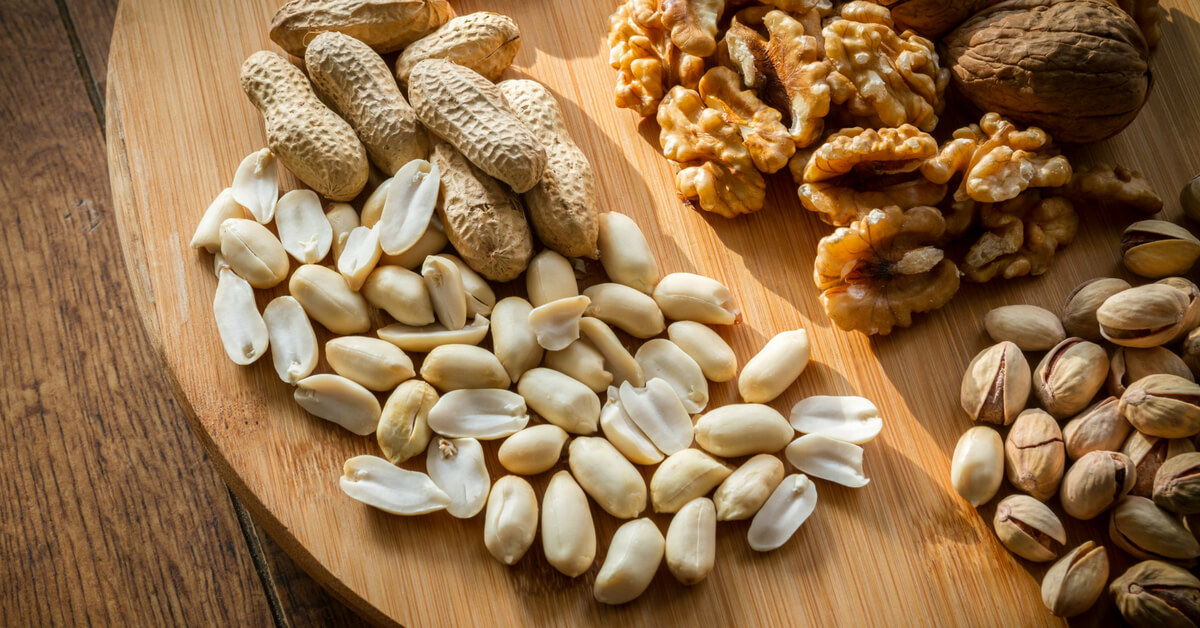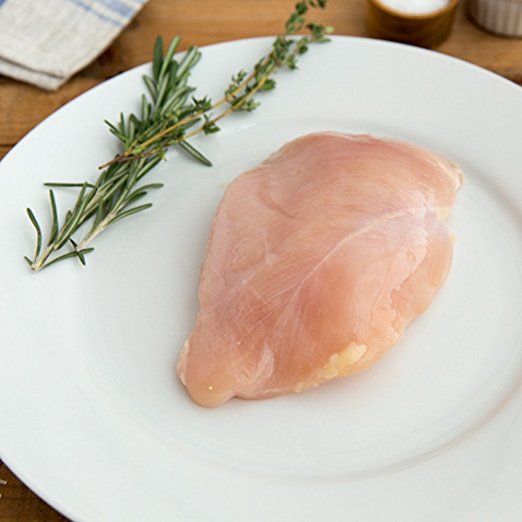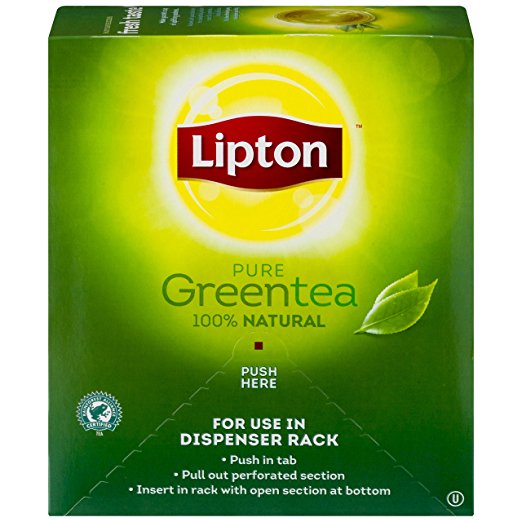Lean Plant Proteins
Earn good health through healthy living by choosing lean plant proteins
The plant-based type of diet has in modern times become very, very popular and set to become even more so for millions of people as they discover the amazing power and health benefits of plants. In fact, this way of eating goes back thousands of years, with a rich history being traced way back in time to the ancient Egyptian people, already back in 1550BC. Evidence also shows that the Roman gladiators were known for eating mostly a vegetarian diet. And look at Daniel in the Bible, who ate and drank only vegetables and water; that at the end of 10 days looked better nourished and healthier than the young men who had eaten of the royal foods.
- Lean Plant Proteins
- Earn good health through healthy living by choosing lean plant proteins
- Compelling health benefits, particularly matters of the heart
- For weight loss too
- Animal vs plant protein
- What is the nutritional advantage of plant-based legumes?
- How to add more plant protein to your diet
- List the top sources of plant-based proteins
- 1. Tempeh, Tofu, and edamame
- 2. Lentils
- 3. Chickpeas
- 4. Peanuts
- 5. Almonds
- 6. Spirulina
- 7. Quinoa
- Say yes to lean plant protein diet!
- Plant protein builds muscle more than animal protein
- Way to go!
- Best Lean Plant Proteins Product
“Vegan” is a word that was already being used around the 1840s, thereabouts. Vegans don’t eat animals that have been killed, avoiding most animal products in their entirety, which means no dairy products, no eggs, and even no honey. The word, “vegetarian” refers to a 100% percent plant-based eating style. Look at these famous historians who enjoyed consuming their proteins from the plant kingdom – Leonardo da Vinci, Pythagoras, and Albert Einstein. We won’t even begin to name all the Hollywood celebrities who are choosing and have chosen to get their proteins from the plant world over the animal world.
Compelling
health benefits, particularly matters of the heart
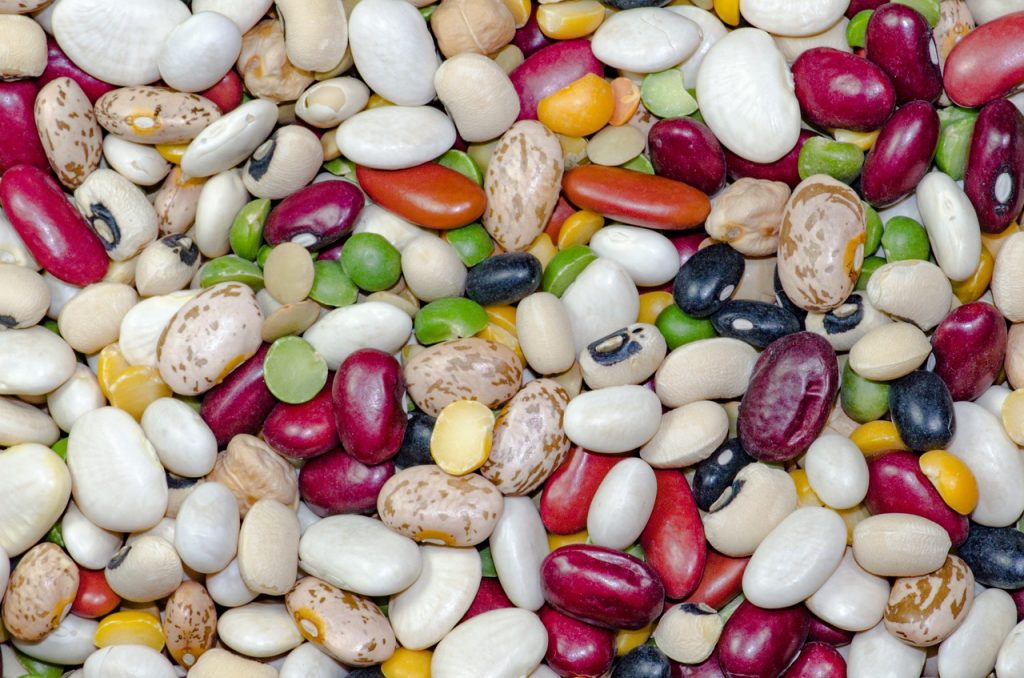
There are many diets to follow; some are good and some not so good. But whichever diet you follow, including legumes, seeds and nuts in your diet certainly will give you a nutritional advantage. Seeds, nuts, beans, peas, and lentils are foods, treasures, from Nature, powerhouses of nutrition which provide excellent sources of plant proteins – they contain phytonutrients that fight disease, and plenty of fiber to lower your cholesterol. A diet that focuses on lean plant-based protein can be highly beneficial to prevent cardiovascular disease, diabetes and also mortality. The Academy of Nutrition and Dietetics were the ones to say in 2016 that people who follow vegan diets have a lower risk of getting cancer and hypertension as well.

Choosing to eat lean plant proteins turned out to be such compelling evidence, it resulted in the DGA – Dietary Guidelines for Americans, encouraging and promoting a shift in the public’s eating food patterns to a more plant-based diet. They suggested that people consume moderate amounts of poultry, lean meats and eggs and to increase more seafood and low-fat dairy products. A plant-based diet that is devoid of meat and dairy products, that is low in saturated animal fats has shown to be very effective for people with diabetes and cholesterol as well, with the possibility of even reversing diabetes and even discontinuing any medications.
For weight
loss too
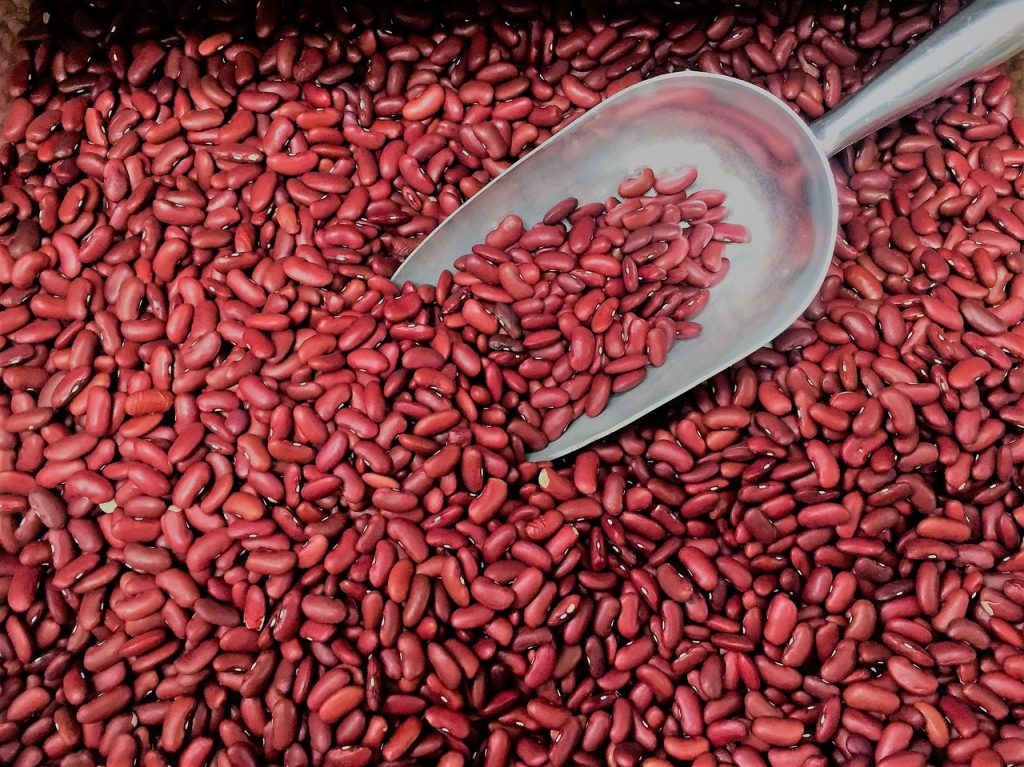
When you need to cut calories, or if you are on a diet to lose weight, we all know how essential it is to stock up on eating healthy foods. And adding plant proteins to the diet might be just the thing to help with weight loss. By replacing your high-fat meat intake with lean plant proteins, you are cutting your calories big time, as well as saturated fat. At the same time, you are helping to improve the nutritional content of your dieting plan. Beans are very effective here because they are so nutrient dense and contain what people consider the top weight loss formula to be; fiber, protein, and water. Diets that consist of fiber, protein, and water are the types that make you feel fuller faster. Proteins require plenty of energy to be able to be digested and metabolized more so than fat or carbohydrates. Digestion is slow for plant proteins which means you stay satisfied for longer which means eating fewer calories in the day.
The thing is, a vegetarian diet also is a low-calorie diet which makes it so easy for vegetarians to easily manage their weight. Lots of processed foods, unfortunately, are not vegan, so being on a vegan lifestyle of eating, you probably are precluding lots of unhealthy pre-packaged and high sodium foods. And more good news, eating vegan whole foods has the ability to reduce inflammation too, particularly in people with coronary artery disease.
Animal vs
plant protein
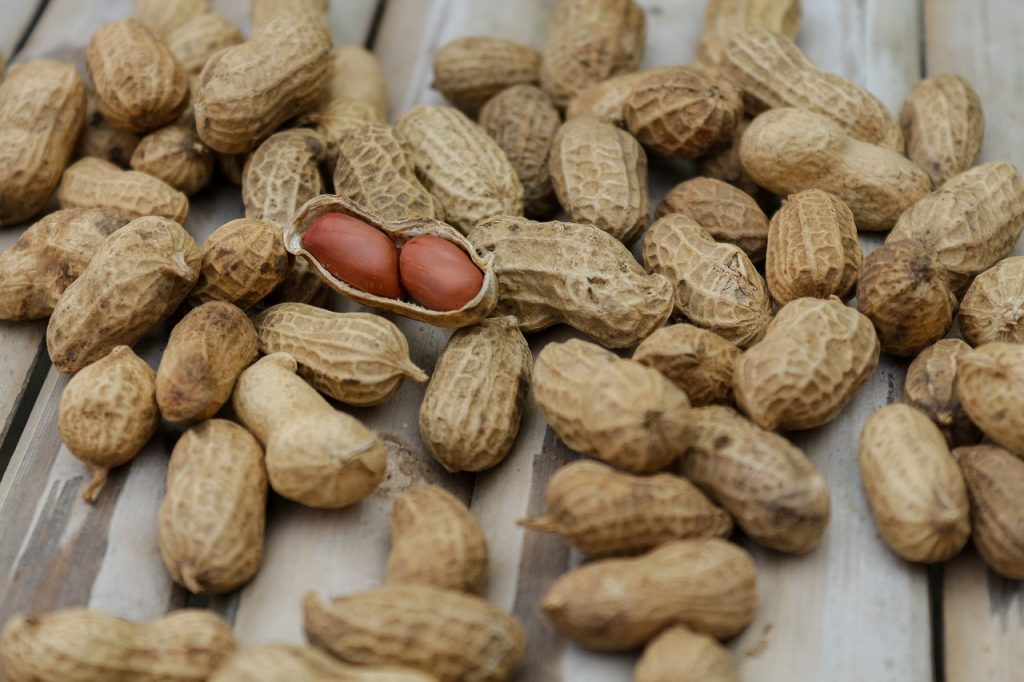
Many people across the world get a lot of their protein from a variety of plant and animal products. Experts recommend that we humans take in higher levels of protein, particularly those people who are used to eating more over refined carbohydrates. When refined carbohydrates are substituted with protein, studies reveal that weight control and cardiovascular disease benefit greatly.
Adults need to consume between 46-56 grams of protein every day; that’s about 10-35% of calories. You will find all 9 of the essential amino acids in complete proteins compared to plant proteins which have a deficiency of a couple of the essential amino acids. Proteins that come from animal sources will be fish, poultry, milk, eggs, yogurt, and cheese of which all the amino acids are to be found. Plant proteins will be found in grains, legumes, seeds, nuts, and veggies and they are called incomplete proteins. As far as peanuts and tree nuts are concerned, they are the only plant-based proteins that have fats in them – healthy fats. Apart from this healthy fat, you will find excellent contributions of fiber and protein and also phytonutrients – this will depend on the nut. The walnut, for instance, is very rich in plant-based omega-3 fatty acids with peanuts being the highest in protein. Almonds contain plenty of calcium and fiber. Eating nuts for protein will contribute to better nutrient intake and also health benefits. Studies done on people who eat nuts found that they have generally healthier diets. A PREDIMED study showed that those people who ate the Mediterranean type diet which included around three servings of nuts in a week had a 30% reduction in the risk of heart disease and a 30% lowered mortality risk. Nuts have the ability to keep you feeling full too, for longer, and to promote good weight loss. And a diet that includes nuts in it does not make you add on any bodyweight either
What is
the nutritional advantage of plant-based legumes?
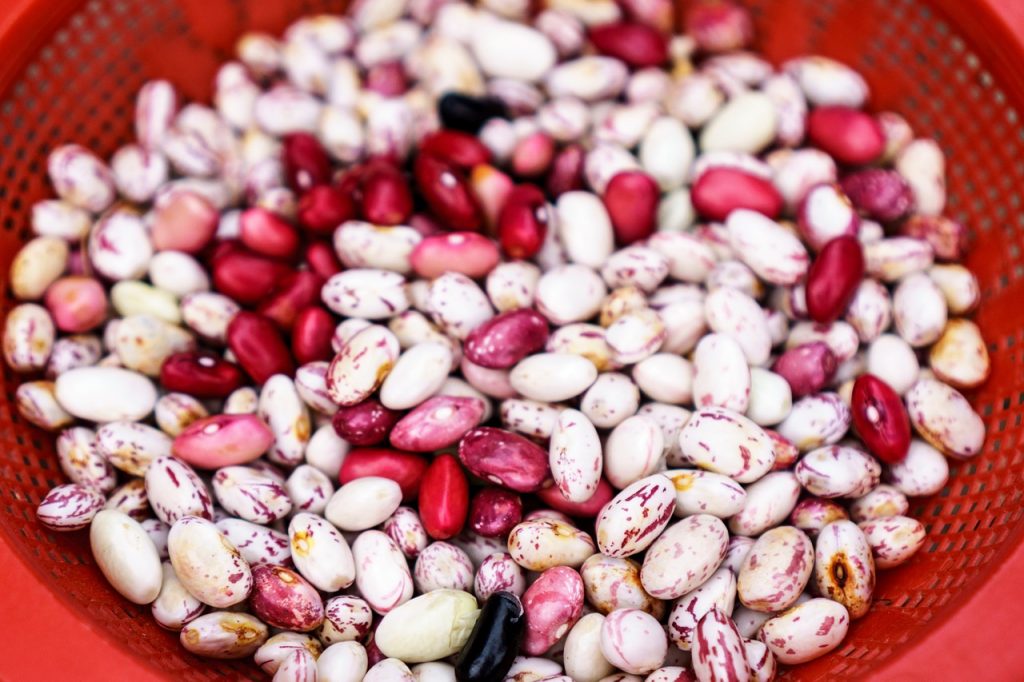
The Dietary Guidelines for America also discovered that beans were so nutritious that they increased their recommendations from one cup per week to three cups per week. And beans are versatile too, falling in both the protein and vegetable groups. They are highly nutritious, adding calcium, fiber, and potassium into the equation as well – which is often what is missing in so many people’s diets. Take the USA for example; most Americans eat only around 15 grams of fiber which is less than their daily recommended dose of between 25-38 grams. Beans are known to be excellent for the heart as well – a half cup serving a day can be associated with a 38% chance of lowering your heart attack risk. The power of plant-based foods!

How to add
more plant protein to your diet
It is really easy to start adding more plant-based proteins to your diet; an excellent substitute for animal protein. You can use legumes to replace animal proteins, and as often as you like. They can be used in soups, pasta, stews salads, meat loaves, side dishes and the like, even delicious dips. You can also try plant-based meat alternatives – using tofu or edamame adds more soy to your diet. You can have great fun incorporating plant-based protein to your diet – you will reap in the nutritional advantages.
You can find protein powders that are plant-based that you can add to your diet, but it will also depend on the plants that were used to make the powders with, which will make them incomplete or complete powders. The American Dietetic Association says that food supplements can help you if you need to meet your everyday nutrition goals. However, if you eat a large variety of foods that are rich in protein, this is a better method of meeting nutritional goals. Also, some of the protein supplements could also have sugar or sodium added to them so that the taste is improved – remember to always read labels.
List the
top sources of plant-based proteins
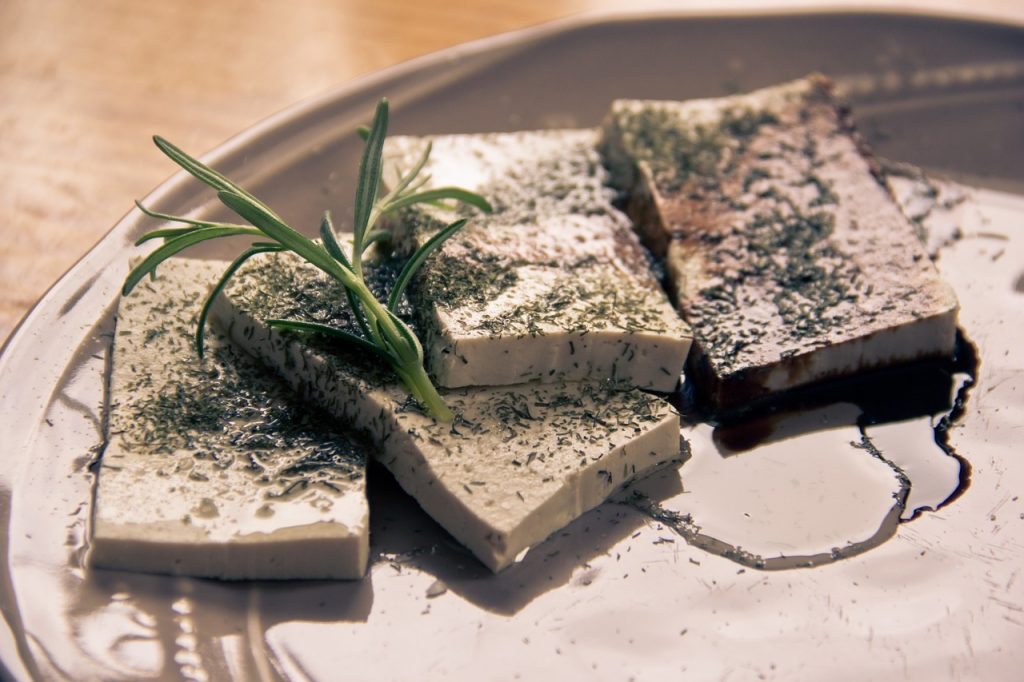
Because more and more people are becoming interested in following vegetarian type diets, trying to reduce their use of animal products, a shift has started taking place with more nutritious plant-based foods becoming available on the market. People turn to a plant diet more these days for all kinds of reasons – it can be for their health, for animal welfare reasons for even or religious reasons. The Academy of Nutrition and Dietetics said in 2016 that a vegan diet was able to provide all the necessary nutritional requirements of children and adults, and even pregnant and breastfeeding women. But still, getting enough of essential minerals and vitamins and protein can be hard for those people who don’t eat the meat or animal products. People plan ahead to try and ensure they get their necessary proteins, iron, calcium and vitamin B-12 which others who eat animal products usually get.
There are some excellent plant-based foods which offer protein. There are some plant products like quinoa and soybeans which are a complete protein. Here are excellent plants that offer you protein:
1. Tempeh, Tofu, and edamame
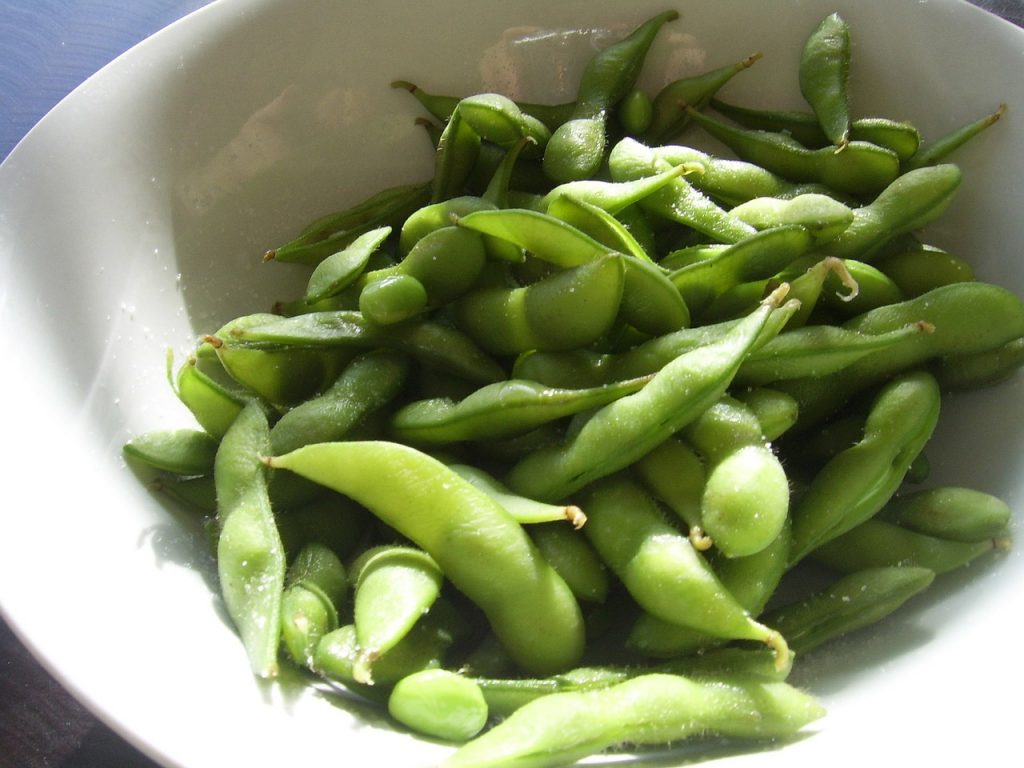
These are soy products, which contain some really rich sources of protein when one’s on a vegan diet. Look at how much protein you find in soy products. Depending on how you prepare soy, you can expect to more or less find this amount of protein in soy products:
- A half cup of soybean curds or tofu has about 10 g of protein. So versatile is tofu because it just takes on the flavors of any dish you prepare
- A half cup of edamame or immature soybeans has about 8.5 g of protein
- A half cup of tempeh has about 15 g of protein
People often use tofu as a substitute for meat, in their sandwiches and soups and because it is so popular, it is used as meat substitutes in dishes such as sweet and sour chicken and Kung pao chicken. Because they also contain calcium and iron, they are marvelous substitutes for dairy products.

2. Lentils
Lentils are either green or red, containing plenty of fiber, protein, potassium, and iron. A half cup of cooked lentils contains around 8.84 g of protein, delicious to add for lunch and dinner dishes. It’s so easy to include in curries, stews, and salads.
3.
Chickpeas
A half cup of chickpeas which are high in protein will give you around 7.25 g. The wonderful thing about chickpeas is they can be eaten cold or hot, in stews, salads, and curries or roasted. Some people like to add hummus to their sandwiches, which as we know comes from chickpea paste – a healthy alternative to butter and packed with protein.
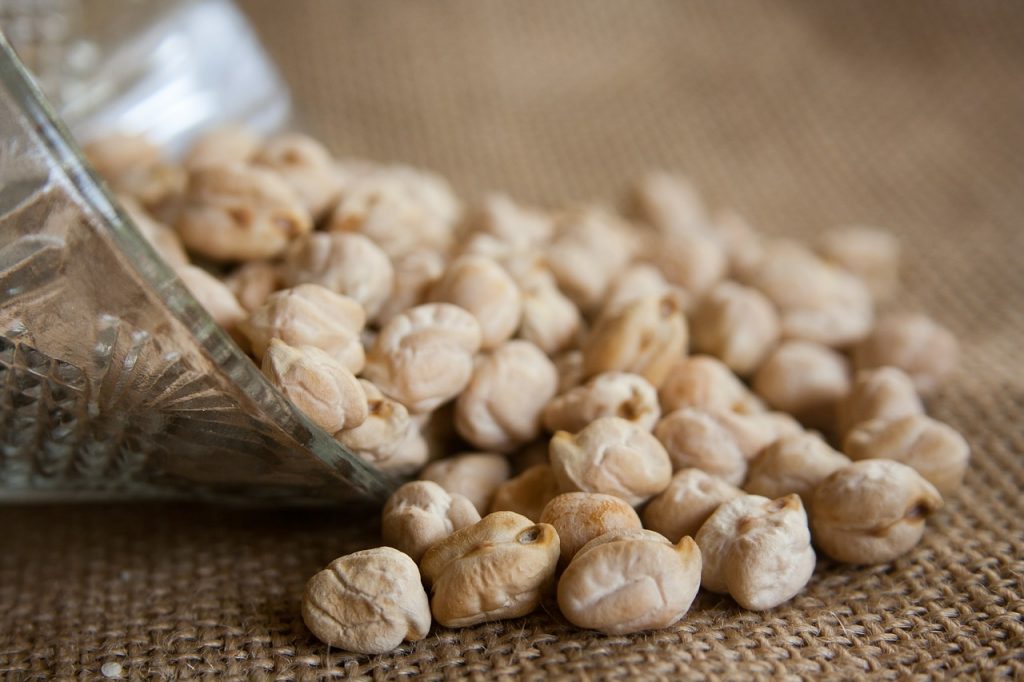
4. Peanuts
Peanuts are a wonderful snack to enjoy and rich in protein, noted even to improve the health of the heart. Half a cup of peanuts will offer you around 20.5 g of protein. Kids grow up with peanut butter sandwiches but it’s because their moms knew how healthy it was for their lunchboxes, what with 8 g of protein in a tablespoon. Peanut butter is a delicious snack which and staves off the hunger pangs!
5. Almonds
Half a cup of almonds offer you 16.5 g of protein and also a fair amount of vitamin E as well, and we all know how excellent vitamin E is for the health of the skin and eyes.
6.
Spirulina
Spirulina is a super food, this green and blue algae stuff that you can find in health shops and some stores, coming in at around 8 g of protein for every 2 tablespoons. Spirulina also contains iron and the B vitamins. You can find spirulina in powdered form and it is good in smoothies, fruit juice, and even just plain water. To increase your protein content for the day, some people enjoy sprinkling it over their salads or snacks.
7. Quinoa
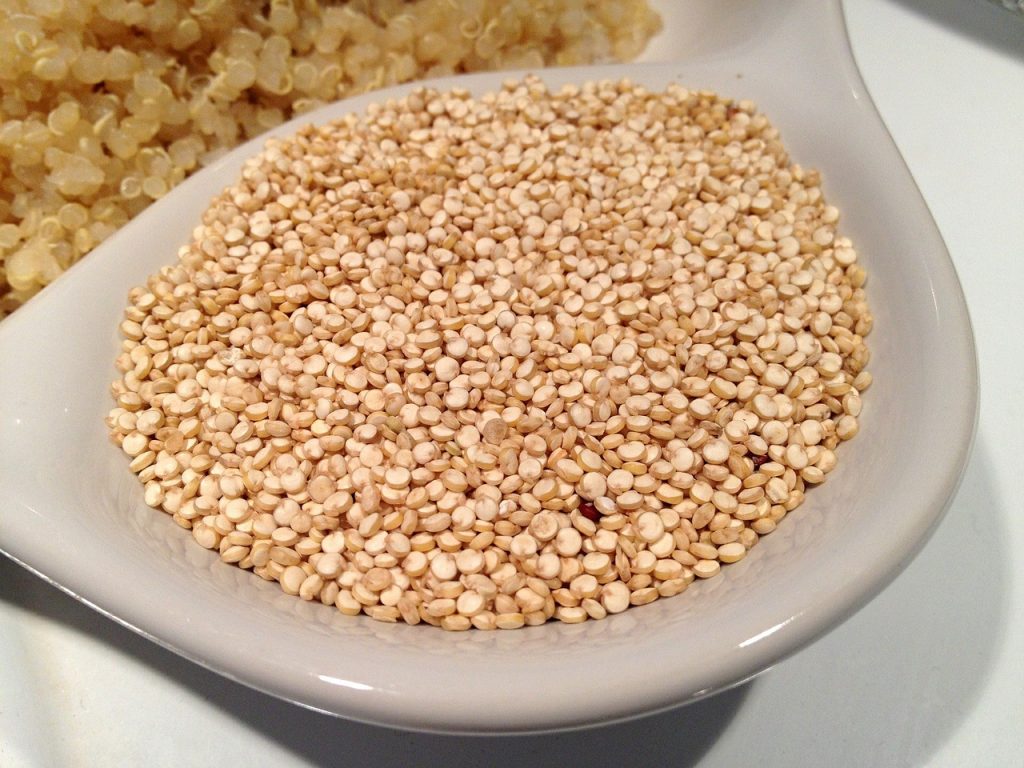
Quinoa is a complete protein grain with an excellent amount of protein in. When cooked, quinoa will offer 8 g of protein per cup, plus you benefit from iron, fiber, magnesium, and manganese. Quinoa is a popular choice for use in stews and soups, or sprinkled on salads.
Here are even more plant proteins for you to investigate:
- Mycoprotein
(Or fungal protein) – 13 g of protein per half cup
- Chia seeds – 2 g per tablespoon
- Hemp seeds – 5 g per tablespoon
- Beans with rice
(Eaten together) – 7 g protein per cup
- Potato – 1 large baked one at 8 g of protein
- Seitan
(When you cook it in soy sauce) 21 g per just a third of a cup
- Ezekiel bread – one slice will offer 4 g of protein
- Protein-rich vegetables
- Broccoli, a medium stalk contains about 4 g of protein
- Kale, 2 g protein per cup
- 5 medium mushrooms, 3 g of protein
Say yes to
lean plant protein diet!
It does require a bit of planning, sure, but it sure is worth it when it comes to health and even losing weight. You should discuss your plans to follow a lean plant protein diet with your doctor or your dietician or nutritionist just because your doctor might think you need to include other nutritional input, as needed.
For quite a few reasons, the plant-based diets have recently become very popular in some of the developing countries, whether this is for health reasons or for ethical reasons. They are also realizing how quality protein foods can be of such benefit to their health. Many of these people believed that when you only stick to a plant-based diet, you did not get sufficient meat, and therefore insufficient protein. But in fact, the Journal of American College of Cardiology, which made a study of over 200,000 people over a long period, 25 years, in fact, concluded in their verdict that “Higher intake of a plant-based diet index rich in healthier plant foods is associated with substantially lower coronary heart disease risk.”
Naturally, if you want to follow a diet that is free of animal products, you will need to research and plan to make sure you get all your nutritional requirements. Some find this beneficial because it makes them consider their diet and to understand what their nutritional needs are. Others will find it a challenge and end up with nutritional deficits.

Plant protein builds muscle more than
animal protein
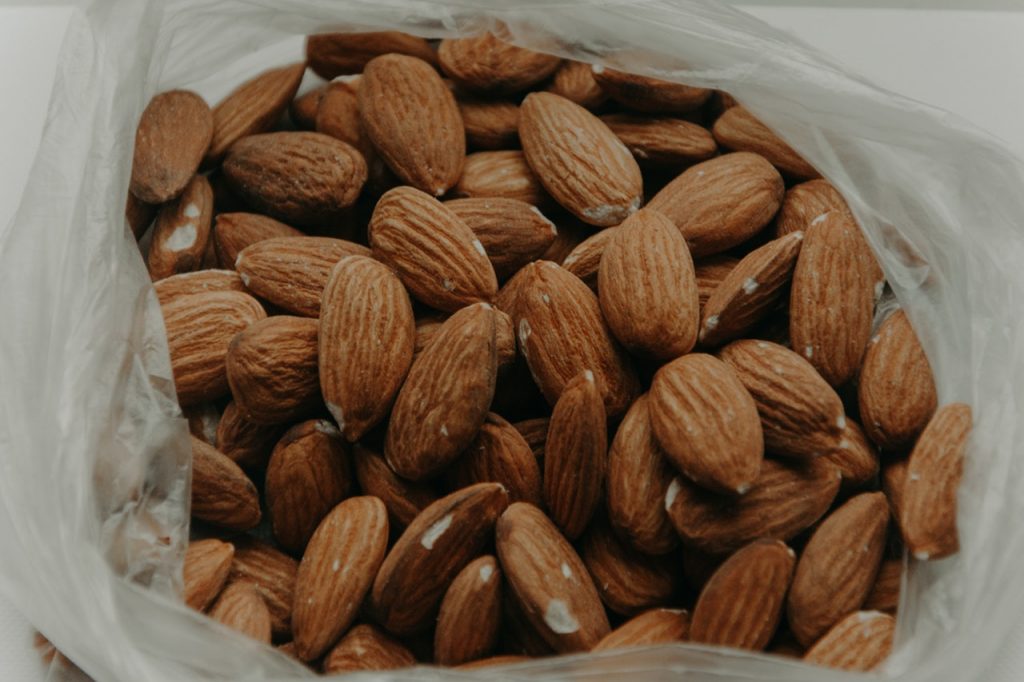
Protein has always been the building block of life because it is made up of vital amino acids that our bodies use in just about every internal process of our bodies. There are fantastic and complete protein plant foods, but because plant protein will show up as containing smaller amounts of protein than animal proteins when you choose to eat plant-based foods, it will require planning and full intention. It certainly is very possible to get all the nutrients that you need from plant foods – all you need to do is plan your meals sufficiently. Even those people who are into bodybuilding and building large muscle mass may have a more difficult time on the complete lean plant protein based diet, such as a vegan diet, but it is still highly possible to achieve their goals – it just requires focus and the right planning. The only thing to really keep in mind is that some animal and plant-based proteins do contain quite high amounts of lectins; (anti-nutrients). When foods are improperly prepared, it is possible that they can have high levels of lectin in them.
Findings are suggesting that people should seriously consider opting to eat more plant proteins in place of animal proteins, for their health, to live longer as well as for their weight. Why don’t you kick-start your protein based plant diet with some fantastic mouthwatering recipes from the plant kingdom itself? Vegans can substitute honey with maple syrup and eggs can be substituted with chia egg or flax. What about something warm and tasty like Tomato basil brown rice or fried chickpeas using coconut oil. Mmmmm!
Way to go!
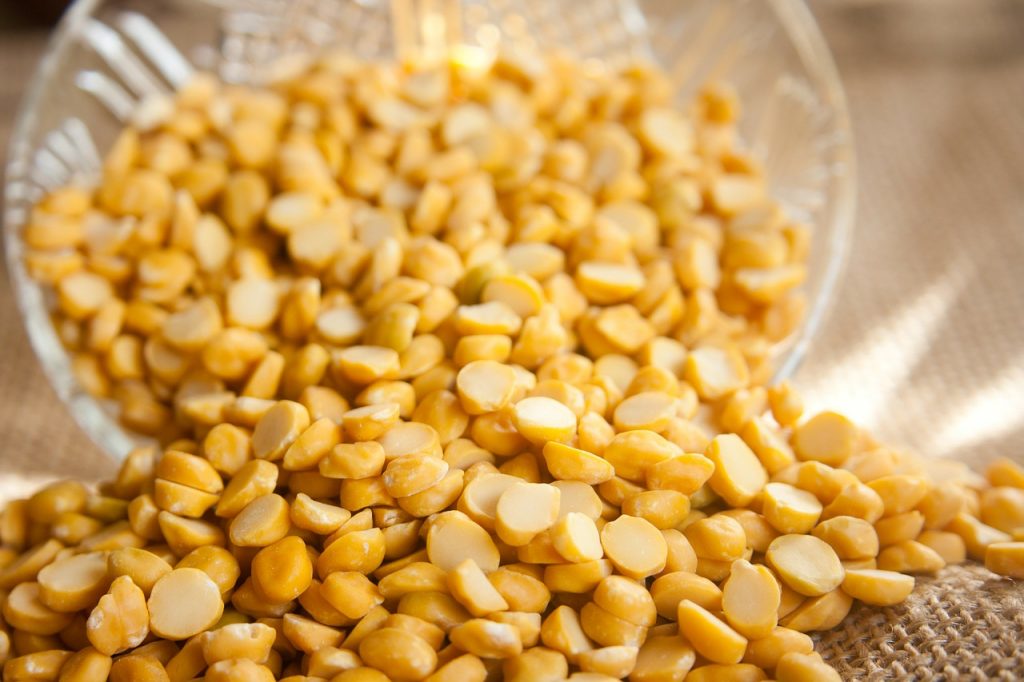
Because people choose the lean plant protein based diet as their choice, whether for health or for animal welfare, here is a wonderful quote to end off that pretty much covers all reasons why it is such a good idea – “I decided to become a vegan because it was the right thing to do. I don’t believe God put these precious creatures here for us to exploit and murder. As a cancer survivor, I appreciate that a plant-based diet is proven to be the best way to prevent cancer cells from growing. And the fact that I’m lean, strong and healthier than ever, well those are just very exciting perks!” ― by Amanda Riester.

